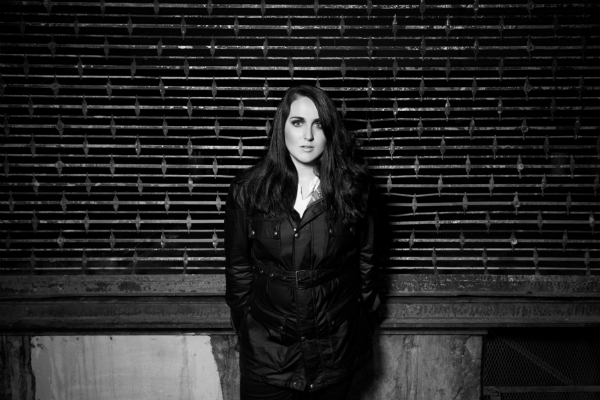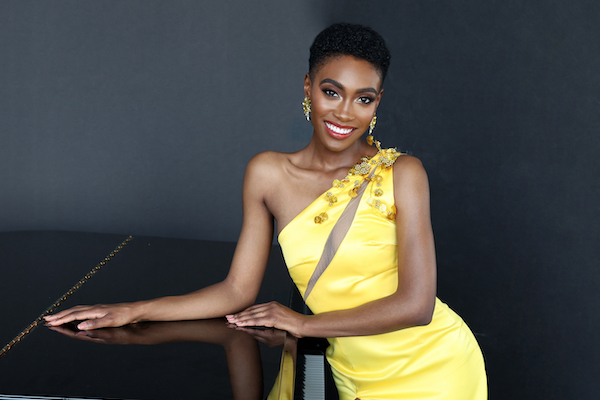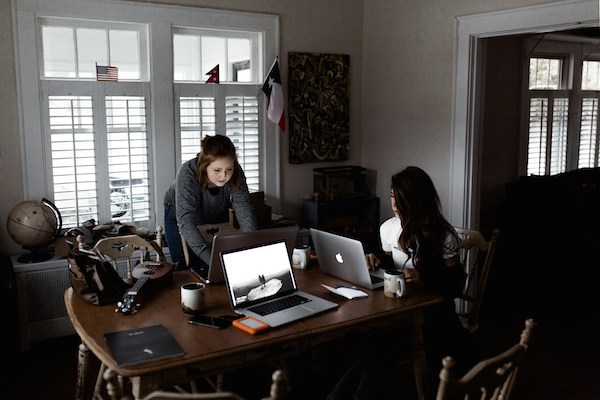
Cirque du Soleil is Coming to Fairfax
August 11, 2017Mothership Festival: A Coachella Valley Women’s Retreat
August 15, 2017Musiq Scene is back and queerer than ever! This issue I got to talk with Katie Hargrove, a Tennessee native Pop/Soul artist based in D.C. Introduced to music by her musician father at an early age, Katie started writing her own music at age 11 and continued onto performance at age 14. We discussed the impact her idols had on her, her drive to be an inspiration to others, and the role love and education play in making the world a better place for the queer community.
Who/what is your inspiration and why?
This is definitely a tough one! So many people have inspired me, but I would say mostly women who are breaking the mold and pushing the boundaries in their respective industries. Whether it’s in music, film or fashion, I find it so inspirational when women are real with their audiences and come right out and say “this was the hardest fucking thing I’d ever done, but it was worth it.” One of my idols, Janis Joplin, struggled with addiction, abuse, and all sorts of issues, but she was one of the most real artists I believe to have traversed the music scene. She was unbound by typical norms of sexuality and strayed from the female stereotype of the time. She was described as intimidating and unpredictable and I strive to be that ballsy in my career.
Why is music important to the queer community?
I think queer culture is becoming such a hot topic now, and I find, as a lesbian woman, that this is both a blessing and a curse. Women in many music genres are spoken about in a very derogatory light and same sex couples are still the brunt of jokes in some industries. For me, music was always my outlet, and although I can’t speak on behalf of the queer community, I can say that music has universally served as the foundation for empathetic growth and understanding. Even when thinking about earth shattering events like the Pulse massacre, I can remember the music that pulled me through such varied, troubled emotions. Songs like “I Know A Place” by MUNA remind us of why it’s important to band together, protect and fight for one another. I think music is truly the glue that holds us together at our weakest, most vulnerable times.
What do you hope to achieve as an artist?
I hope to build a career that I’m proud of and that inspires people. There are so many pop singers that really cater to the heteronormative ideals of a man rescuing a damsel in distress, but I would like to think I’m playing a role in rewriting my own narrative to include same sex characters. I want to be the voice that carries people through tough times and sparks the light in them to keep fighting even when it all feels too heavy. I’m living every day trying to build a career that I’m astonished and in awe of when I’m lying on my death bed. I want to live a life of legacy, not just leave one behind.
Did music play an integral role in your coming out? If yes, how so?
Hell yes! 100 percent. I remember truly feeling like I was “coming out” in my song “The Last“; which was written about my partner. Simply being able to utilize words describing a woman in a song like “My Queen” is a power that feels unparalleled. I didn’t come out until my last year of college. I really fought against the feelings, because being from the rural hills of Tennessee it’s not a commonplace topic. I sought out religion and classes and all sorts of “remedies”, as sad as it sounds, to try to be not gay for fear of backlash.
As it turns out, I came out a couple years ago and the world kept turning. I lost a couple people who I believed were friends, but my music was honestly what got me through it all, and ultimately gave me the strength to truly be my genuine self. “Save Me“, from my recently released album, really sheds a light on some of my darkest hours. Coming out and saying “I’m gay” was one of the most liberating moments in life, and I can honestly say my music was my crutch to lean on when my knees began to shake. I found my true voice and it’s a privilege to be who I truly am in this industry.
Given challenges facing our country and community, in your opinion, what is most needed for the queer community now? How can the music scene further that goal?
My honest answer to this would be love and education. Our community has been shaken to the core continually from so many sides. To live in a world where our leaders won’t fight for marriage equality and trans rights is a terrifying and cruel reality. The trans community has really suffered so many harsh and unimaginable blows from our government. It’s a constant punch to the gut to turn on the TV and see who’s being victimized today.
So many people want to wave the rainbow flag at pride, but they’re not willing to take action. Growing up I never really heard about same sex couples. It wasn’t a topic of discussion, much less a life I saw depicted in movies or TV shows. I think the basis of these issues is the lack of conversation and education beneath all of the hate. I think we need more representation in the media. We need more actors playing parts that they identify with, not merely an actor who got cast due to their extensive repertoire. We need more music where people use the pronouns that they identify as and can sing love songs to the people they actually love.
I grew up listening to Melissa Etheridge, so we can all see my apples didn’t fall too far from that tree, no matter how backwards my adolescent environment may have been. I think music has so much power, in the media especially. Music can say so much while saying so little. There are so many musicians pushing back against the norms right now; Troye Sivan and Syd (The Internet) to name a few. With each word of truth we hear in music, maybe we can begin to build a safer, more real version of ourselves. And maybe, overtime the melody of love and acceptance will transform into a universal song of change.





